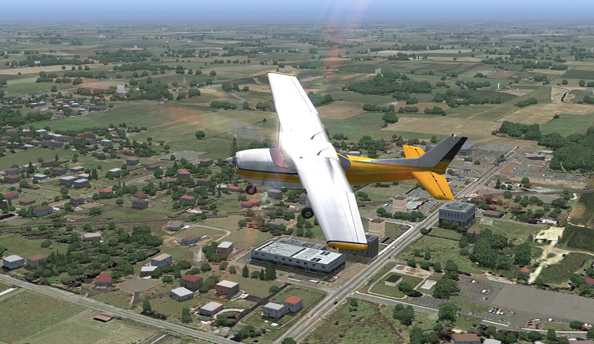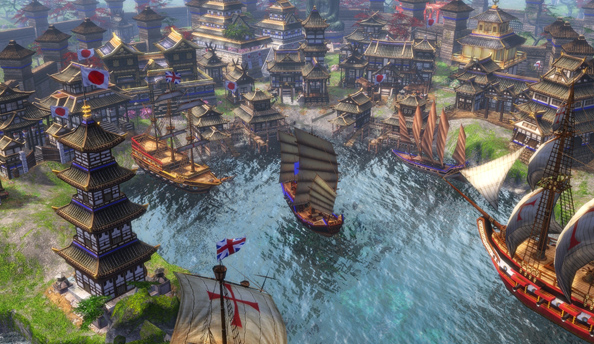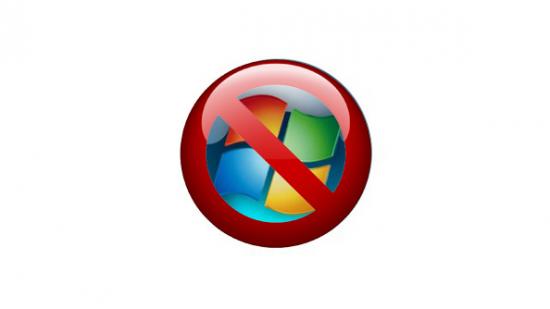In 2001, Microsoft irrevocably altered the path of PC gaming. They built a console. Since then, Microsoft have largely abandoned PC gaming. They make very few PC games, and those that they do make are casual or tablet fodder. They invest little in new PC game technology. They make no attempt to push are market PCs as a gaming platform. Their Games for Windows program has largely been abandoned. All that’s left is a few HD ports of old classics, and the occasional Windows 8 exclusive.
What happened? Why did the company that built Windows abandon games? And will they ever come back?
I spoke to Kevin Bachus, formerly of Microsoft, and the co-creator of the Xbox. Kevin joined Microsoft in 1997 as part of the DirectX team. His goal: to increase the visibility of PC gaming. To make PC gaming bigger and better. “I wanted to create marketing programs that PC games publishers could take advantage of, just like console publishers. When I got there I found that the reason Microsoft are so successful is that they do nothing to market Windows.”
The PC’s prevalence alongside a thriving set of manufacturers and partners meant that Microsoft didn’t have to lift a finger to market their platform. Nor did they have to get involved in promoting games. “PCs are out there and games will be written for them because there are hundreds of millions of PC owners that have an interest in games. So those games would be created regardless of anything we did. We could just sit back and watch and learn.”

Back then, the DirectX team was working on a common set of APIs and instructions that could be used by developers across the world. At the time, Kevin says, the DirectX team was “the centre of the games industry within Microsoft.” Meanwhile, Sony were making grandiose claims about the power of the Playstation 2.
“‘Bill came to us and said ‘Is there anything to this?’” recounts Kevin. “Shamelessly we took his request to do an analysis of Playstation 2 and onto the end of it added, ‘You know we can build one of those too and in fact we probably should build a console’.”
At the time, Kevin could see the audience for games shifting. “The mindshare was going from PC, to console.” As he puts it, “the genesis of Xbox has as much to do with our ability to convince Microsoft that while it thought that it was a major player in a multi-billion dollar industry that it was in fact a major player in one billion dollar industry and not at all in another billion dollar industry. My feeling was that if people were going to jump off the PC bandwagon and start playing games on consoles, I’d rather have them playing on a Microsoft console than on a Sony console or a Nintendo console.”
There’s the assumption that Microsoft’s Xbox efforts were viewed as a Trojan horse; to enter and own the living room. That’s not entirely true, says Kevin. “The Xbox came about because we felt that we could build a better console than the competition could. That we could build one that was easier to develop for that had better graphics… Maybe at the highest level of the company there was a recognition that if we didn’t want to be Oracle and just build business software then we needed to have something that consumers wanted to buy. There was a place in the home, the living room or bedroom where we couldn’t go because of the form factor of the PC.”

At first, the project continued under the radar. “For the first year or so where nobody within Microsoft thought we were going to be successful we were largely left alone to do our thing,” explains Kevin. “Everyone thought for sure we’d get shut down by Ballmer.”
But gradually, the Xbox gathered momentum. First within Microsoft, then with the development community. “After Bill Gates went on stage at the Game Developers Conference and said we’re going to spend a $100 million on marketing. Suddenly I look around and there’s all these guys all there to help.”
Even though the Xbox received the blessing of Microsoft’s CEO, internally, executives were skeptical. Why should Microsoft be interested in games in the first place?
“When word started getting out that we were building a games console I had a parade of executives coming through my office,” says Kevin, Inevitably the conversation would be exactly the same: ‘We think it’s ridiculous that the company is wasting all this money on this games console.”
Games rarely feature in any marketing or advertising efforts for their PC work. Most recently, Microsoft’s ads for Windows 8 and Surface haven’t shown any games. At all. Why?
“Even though they know what percentage of people play games on PC, Microsoft have this view of the average PC owner being more focused on web browsing and doing email and balancing their checkbook. That’s their perception and that becomes self fulfilling because they don’t promote it.”

It’s a disconnect within Microsoft’s marketing side. “ I think they think that games are still this kind of niche thing on PCs. Even though they are the leader, even though they are the standard bearer I think there are people within marketing in Microsoft who don’t really believe that. They think that games are for other people, not for the average person.”
There’s also a question of caution: on PC, Microsoft are careful not to offend. “They’re very risk averse in a lot of respects,” says Kevin. “They’re not going to show Minecraft because there’s battles in Minecraft. That might offend someone.”
In 2009, Microsoft closed Ensemble Studios (creators of the Age of Empires games), FASA studios (Mechwarrior) and Aces (Flight Simulator). Kevin doesn’t see this as a symptom of retreat from PC gaming: more a consequence of the economics of gaming. “Every gaming company, I don’t care if it’s Electronic Arts, Activision, anyone, they’re discovering that the business models that they use right now are untenable. As a result they’ve had to make some difficult choices. Microsoft, despite the fact that the company has all these cash reserves, has to operate rationally. If you look at the kinds of games that Ensemble were building and at the market for Flight Sim: you’ll say that what we’re investing in this is not returning what we’d expect it to. Do we continue the bleeding or do we stop it now?”

And it’s unlikely that any major PC games will be developed at the company for the foreseeable future. “If you have an opportunity at Microsoft to work on a strategy game, or to work on Xbox One, what are you going to choose? Especially those executives who don’t come from the games industry originally; they’re going to be attracted to the sizzle of the console.”
That’s going to be a problem for Microsoft going forward – whether they make Xbox or PC games.
“They haven’t really left a lot of room in the indie space,” says Kevin. “Where’s the next Ensemble or the next Bungie? All these companies had been indie before they were acquired. Even EA Sports, Don Mattrick’s company was an independent software developer that was acquired by EA. That’s a more interesting question than whether once you’ve made those acquisitions you continue to fund those divisions when their product lines are no longer profitable.”
